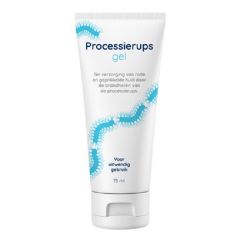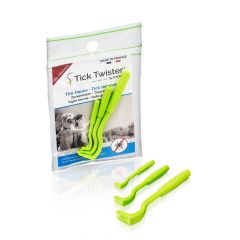Katkor granules
 You earn (from) 30 PharmaPoints
You earn (from) 30 PharmaPoints
 Earn 100 PharmaPoints for writing a review for this product
Earn 100 PharmaPoints for writing a review for this productKatkor is a cat litter granule that does not absorb moisture and is therefore very suitable for collecting urine samples. Urine samples can be used to perform urinalysis for the different types of bladder stones, protein, glucose, ketones, blood and specific gravity. In addition, Katkor can be used for the collection of faeces for research on, among other things, worm eggs and digestion indicators.
User manual Katkor
1. Thoroughly clean the litter box. Then rinse it well with clean, lukewarm water so that no detergent or bleach residue remains. Then dry the litter box using a kitchen or toilet paper.
2. Sprinkle Katkor in the center of the container. Put the box back in the place the cat is used to.
3. If the cat produces faeces rather than urine, the faeces should be removed as soon as possible to avoid any contamination of the urine to be collected.
4. Urine should be collected as soon as possible after urination. Squeeze the balloon of the supplied pipette and tilt the container on a point. Insert the tip of the pipette into the deepest point of the tray and then release the balloon. The urine will now be aspirated.
5. The urine thus aspirated should be placed in the supplied collection tube and delivered to the veterinarian as soon as possible. This is important because the urine composition and the shape of the crystals can change if the urine is stored for a longer period of time.
6. It may happen that a cat is not satisfied with the amount of granules. In that case you can use two containers of Katkor. In most cases, only 1-2 ml of urine is needed for the desired examinations. With a container of Katkor there is a return of 7 ml of urine per 10 ml of urine discharged by the cat. Cats produce an average of 35 – 80 ml (on dry food) to 80 – 120 ml of urine per day, so collecting enough urine will not be a problem in most cases. Only with a bladder infection does the cat only produce a few drops at a time. In that case, sufficient urine will probably have been collected after some time (1 – 2 hours). The urine that has already been collected must not be stored in the refrigerator in the meantime, as crystals can then form.
7. If the cat really does not want to use the Katkor litter box, regular cat litter can be placed in a corner of the box. This way the familiar scent remains present. It is very important to ensure that the urine sample does not become contaminated with the normal granules. However, since the risk of contamination is still present, this method should only be used in extreme cases.
| Animal | Cat |
| Prescription required Netherlands | No |
| Prescription required Germany | No |
| Prescription required France | No |
| Prescription required Spain | No |
| Further information |





